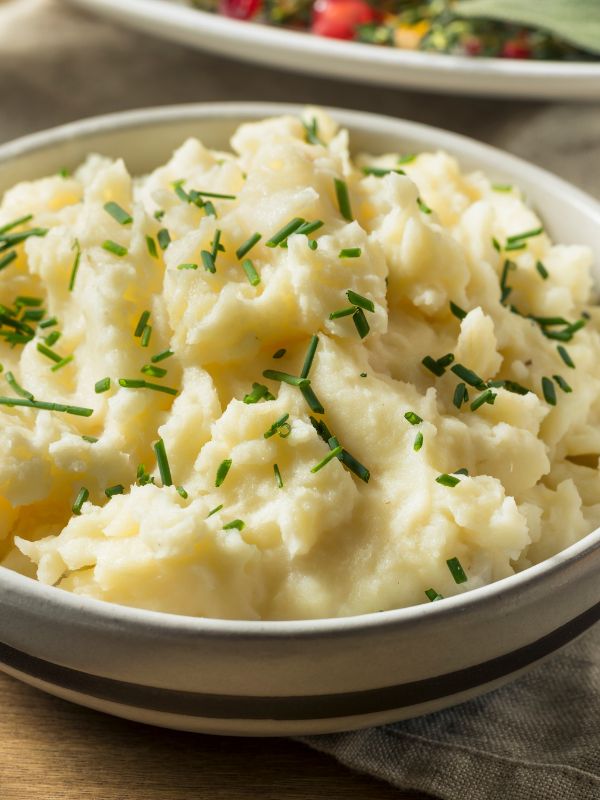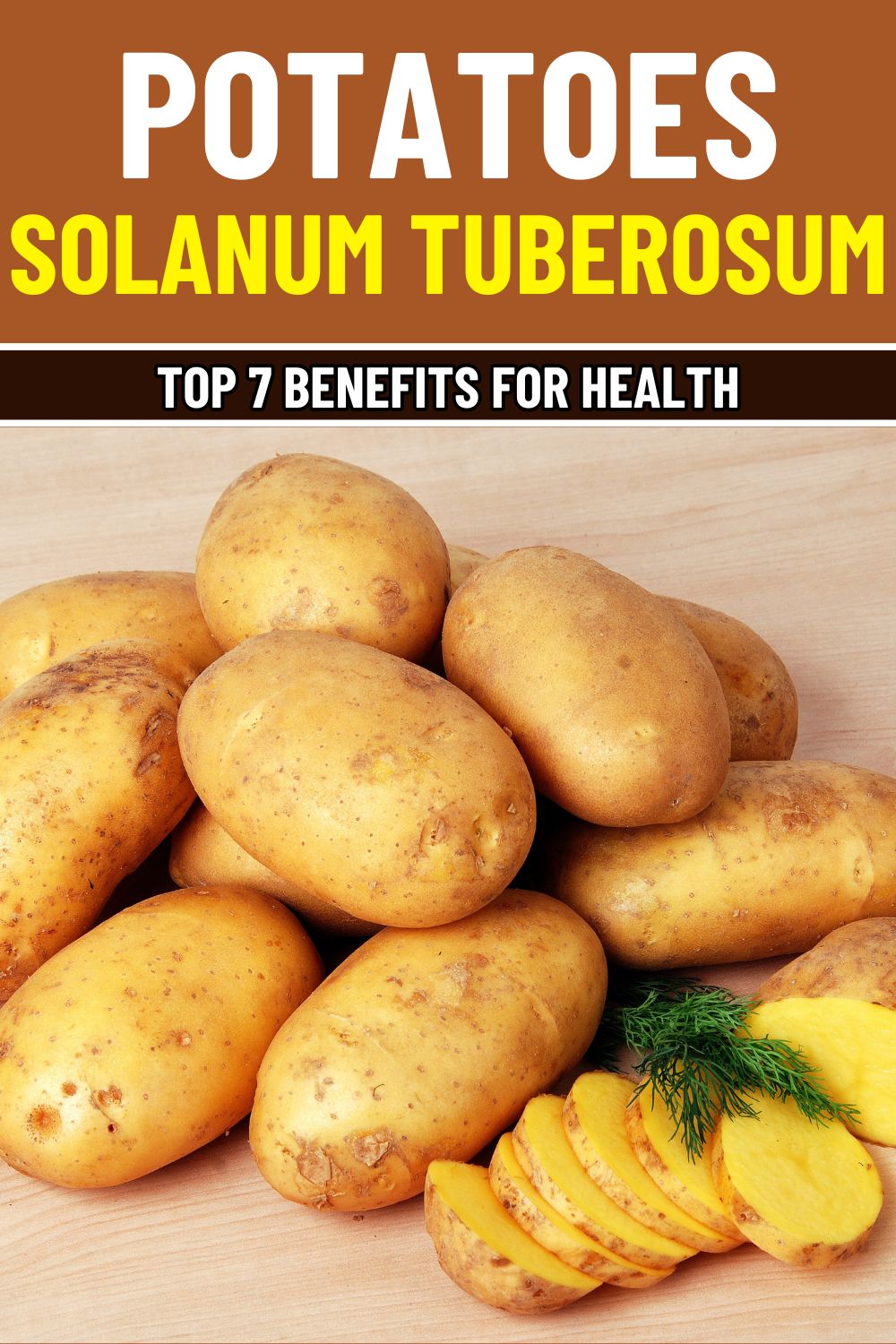When most people think of potatoes, they imagine fries or mashed potatoes smothered in butter. But this humble vegetable, potato (Solanum tuberosum), is much more than just a comfort food.
Native to the Andes, potatoes are packed with essential nutrients that can benefit your health unexpectedly. From improving heart health to boosting digestion, potatoes deserve a place on your plate.
#1. Supports Heart Health
Potatoes are surprisingly heart-healthy, especially considering their potassium and fiber content. A medium-sized potato provides about 429 mg of potassium per 100 grams, which is nearly 10% of your daily recommended intake.
Potassium is a vital mineral that helps regulate blood pressure by balancing sodium levels, ultimately supporting a healthy heart.
Additionally, potatoes contain about 2.2 grams of fiber per 100 grams, which helps lower cholesterol levels, further reducing the risk of heart disease.
The INTERSALT Study, a large international research project, found that higher potassium intake is associated with lower blood pressure and, consequently, a reduced risk of heart disease and stroke.

#2. Boosts Immune System Function
Potatoes are an excellent source of vitamin C, an essential nutrient that helps strengthen the immune system. In just 100 grams of potatoes, you get 19.7 mg of vitamin C, which is about 33% of the recommended daily value.
Vitamin C boosts white blood cell production, which is vital for fighting off infections. It also acts as a powerful antioxidant, protecting your cells from damage caused by harmful free radicals.

3. Improves Digestion and Gut Health
The fiber in potatoes plays an important role in digestive health. A medium-sized potato provides about 2 grams of fiber, which helps improve gut health and prevent constipation.
The fiber in potatoes, particularly when eaten with the skin, adds bulk to stool and promotes regular bowel movements. Additionally, fiber feeds the beneficial bacteria in your gut.

#4. Helps Manage Weight
While potatoes are often considered a calorie-dense food, they can actually help with weight management when consumed in moderation.
The fiber in potatoes contributes to feeling full for longer periods, which helps curb overeating and snacking. The protein content in potatoes also helps stabilize blood sugar levels, preventing rapid spikes and crashes that can lead to cravings.
When cooked in healthy ways, potatoes can aid in weight management by promoting satiety and reducing overall calorie intake.

#5. Regulates Blood Sugar Levels
Potatoes have a low glycemic index (GI) when cooked properly, which means they release sugar slowly into the bloodstream, preventing spikes in blood sugar.
In fact, studies have shown that boiled potatoes have a lower glycemic index compared to mashed potatoes or fried potatoes, making them a better option for managing blood sugar levels.
Including potatoes as part of a balanced meal can help keep blood sugar levels stable, which is particularly important for individuals managing diabetes or insulin resistance.

#6. Provides Energy for Physical Activity
Potatoes are an excellent source of complex carbohydrates, which provide a slow and steady release of energy. This makes them an ideal food for fueling physical activity.
For example, 100 grams of potatoes contain about 17 grams of carbohydrates, the energy you need to stay active throughout the day. The carbohydrates in potatoes also help replenish glycogen stores in muscles after exercise, aiding recovery.
Athletes and active individuals can benefit from adding potatoes to their meals for sustained energy, especially when consumed alongside protein-rich foods.

#7. Promotes Healthy Skin
Potatoes are packed with vitamin C and antioxidants, both of which are great for skin health.
As mentioned earlier, vitamin C helps with collagen production, which is crucial for maintaining the elasticity and structure of your skin. A diet rich in vitamin C can help reduce the appearance of wrinkles and support healthy, glowing skin.
Additionally, antioxidants in potatoes, including lutein and zeaxanthin, help protect the skin from environmental damage, such as exposure to UV rays and pollution.
Studies have shown that antioxidants can help reduce oxidative stress in the skin, potentially reducing signs of aging and even helping with conditions like acne.

How to Incorporate Potatoes Into Your Diet
- Baked potatoes: Try baking potatoes and topping them with Greek yogurt, vegetables, and a sprinkle of cheese for a nutrient-packed meal.
- Potato salad: Make a healthy potato salad with boiled potatoes, olive oil, and fresh herbs, avoiding heavy mayo-based dressings.
- Mashed potatoes: Use olive oil or low-fat milk instead of butter to make a healthier version of mashed potatoes.
- Potato soup: Make a creamy potato soup with added vegetables for a comforting, heart-healthy dish.
Stick to 1 medium potato (150 grams) per meal to keep calorie intake in check. Aim to eat potatoes 2-4 times a week, depending on your overall diet and calorie needs.

Cautions and Precautions
Mashed potatoes and fries have a higher glycemic index than boiled or baked potatoes, which can lead to rapid blood sugar spikes. It’s best to choose cooking methods like boiling, steaming, or baking to keep the glycemic index lower.
While potatoes are nutritious, they can become calorie-dense if consumed in excess, especially when fried or paired with heavy toppings. Moderation is key.
Potatoes belong to the nightshade family, and some people may experience joint pain or digestive discomfort from nightshades. If you are sensitive to these plants, consider limiting potato intake and consulting a healthcare provider.
Disclaimer
This article is for informational purposes only and is not a substitute for professional medical advice.
Always consult a healthcare provider before making significant dietary changes, especially if you have specific health conditions or take medications.

7 Surprising Health Benefits of Potatoes You Need to Know About
